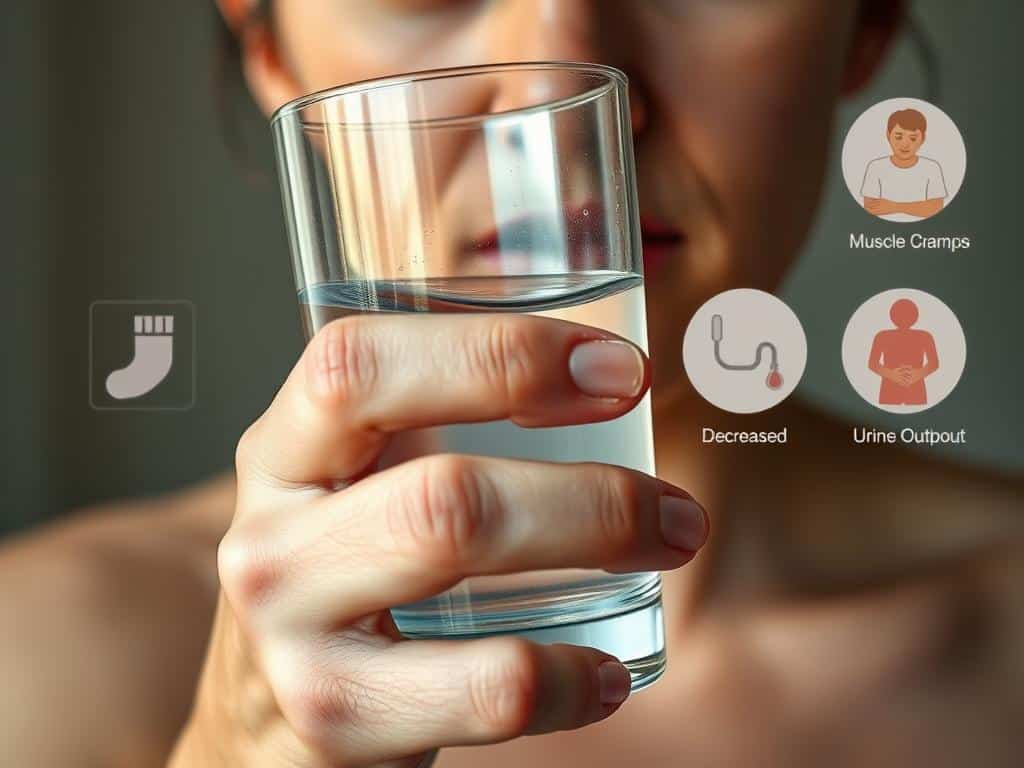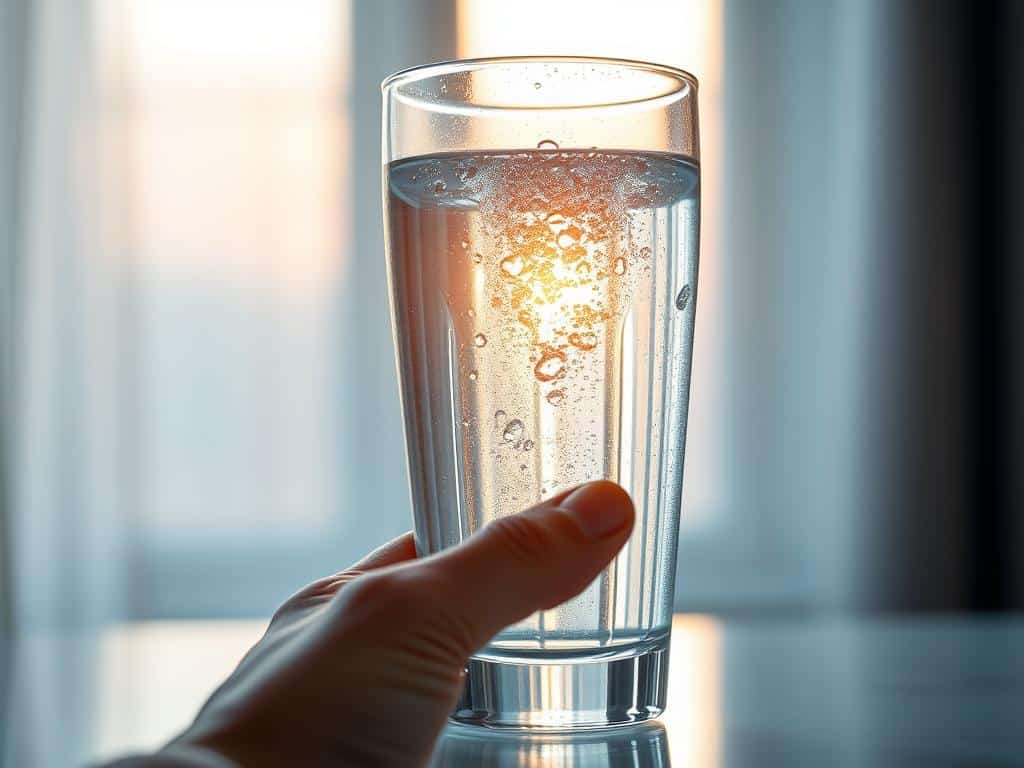Ever felt off without realizing you hadn’t had water in hours? I’ve been there too. Life can get so busy, we forget to drink enough water. But ignoring our need for water can cause serious problems. Let’s look at the signs of dehydration to know when to drink more.
Dehydration can show up in many ways, from headaches to dry skin. It’s important to notice these signs to stay healthy. Did you know your urine color can tell you if you’re hydrated? Clear or pale urine means you’re good, but dark urine is a sign to drink more.
I’ll also share tips on how to stay hydrated all day. This way, you can avoid dehydration and feel better.
Key Takeaways
- Clear or pale urine indicates proper hydration.
- Drink water 1-2 hours before outdoor activities and sip regularly during exercise.
- Avoid dehydrating beverages like alcohol and caffeine.
- Incorporate water-rich foods into your diet for extra hydration.
- Watch for signs such as headaches, muscle cramps, and fatigue as indicators of dehydration.
- Monitor your energy and mood to assess hydration levels.
Understanding Dehydration
Dehydration happens when we lose more fluids than we take in. This can mess up how our bodies work. Causes include severe diarrhea, vomiting, fever, and sweating too much. Some medicines can also make us lose more water.
It’s important to spot dehydration early. Symptoms change based on age and how bad it is.
What Causes Dehydration?
Many things can cause dehydration, like severe diarrhea or vomiting. Fever, sweating a lot, and some medicines can also lead to it. It’s more common in babies and older people.
Babies might have a dry mouth, no tears, and sunken eyes. Adults might feel very thirsty, have dark urine, and feel tired or dizzy. Chronic illnesses and certain medicines can also increase the risk.
Recognizing the Warning Signs
Knowing the signs of dehydration is key to staying hydrated. Look out for dry skin, less urine, and darker urine. Feeling dizzy, tired, or having headaches are also signs.
In serious cases, confusion, drowsiness, and a weak or fast pulse can happen. Spotting dehydration early helps us get fluids back into balance.

Importance of Hydration
Hydration is key for good health. Many people don’t realize how important it is, leading to dehydration. In fact, 75% of Americans face this issue often. Drinking enough water boosts health and helps with important body functions.
Health Benefits of Staying Hydrated
Hydration is vital for health. It keeps our body temperature right, preventing heat sickness. It also helps our muscles and joints, which is great for staying active.
Drinking water also helps with digestion, reducing problems like constipation and heartburn. It cleans out harmful bacteria from our urinary tract, lowering infection risks. Plus, it improves brain function, boosts energy, and helps us feel emotionally stable.
Mild dehydration can hurt our memory and focus. This shows how important it is to drink enough water every day.
How Much Water Should You Drink?
Experts say we should drink eight 8-ounce glasses of water a day. But, our needs can change based on age, weight, and how active we are. Older adults are more at risk of dehydration, with up to 28% affected.
It’s important to listen to your body. Signs like dizziness, dry mouth, and dark urine mean you need more water. To stay hydrated, carry a water bottle, set reminders, and drink water with meals. Adjusting your hydration to fit your life can greatly improve your health.
Conclusion
I’ve looked into dehydration signs and why staying hydrated is key for our health. Knowing the signs like fatigue and mood swings helps me know when I need water. Even a small amount of dehydration can affect my day.
Drinking enough water is not just a tip; it’s critical for our brains and bodies. It helps us stay focused and perform better. The European Hydration Institute suggests men drink about 13 cups and women about 9 cups of water each day.
I urge you to make hydration a priority. Simple actions like always carrying a water bottle or setting reminders can make a big difference. By keeping an eye on our water intake, we can boost our health and energy. Let’s all make a commitment to drink more water for better health!
